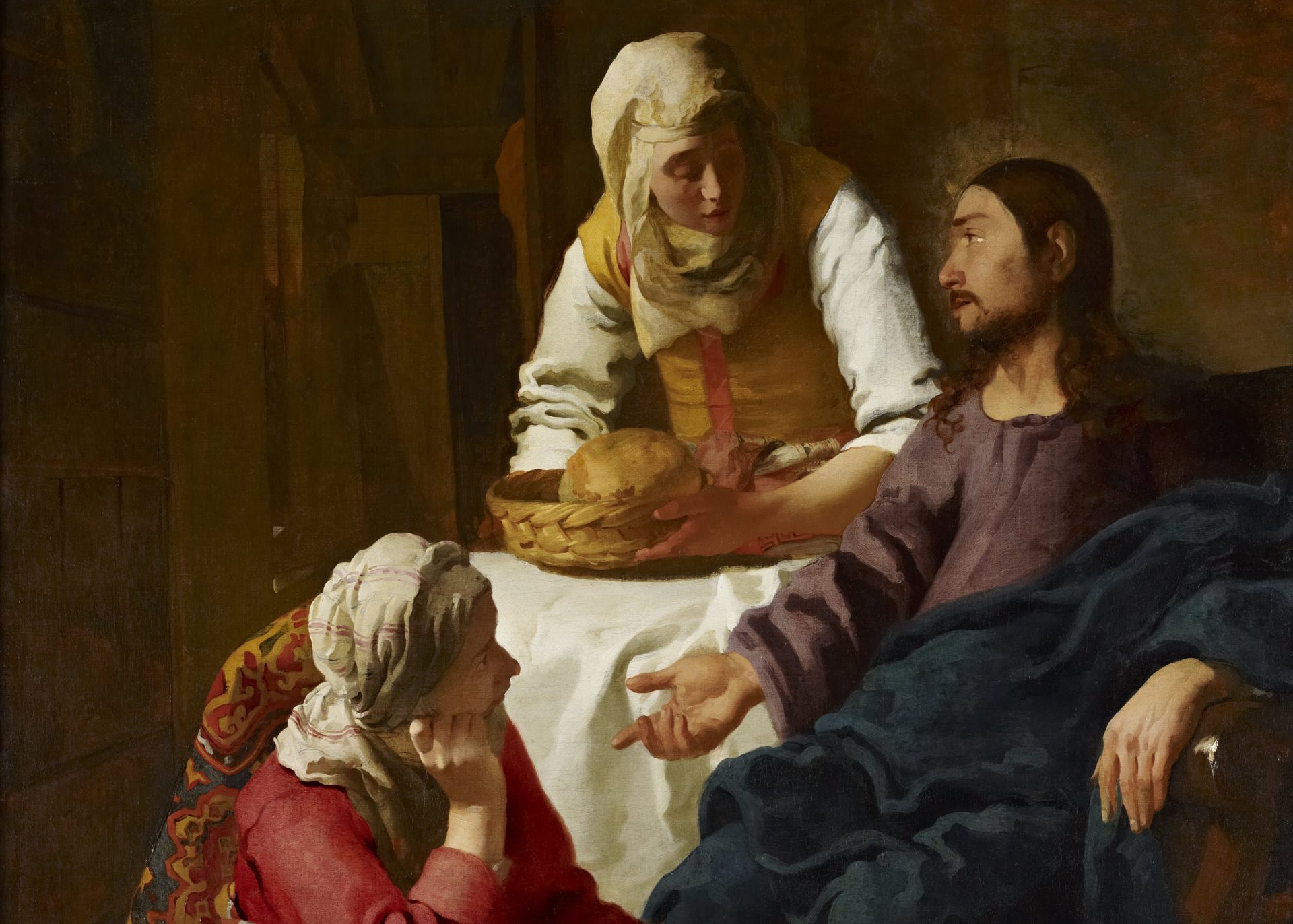Reflection for the 16th Sunday in Ordinary Time (Cycle C)
A child once complained to a friend, “I can’t understand my parents!”
“Have you ever talked to them?” asked the friend.
The child fired back, “How can I talk to them if I can’t understand them?”
To which the friend quietly replied, “But aren’t you supposed to communicate with them first, before you can expect to understand them?”
Throughout most of the time in which the sapience of our species has been engaged with the flux of human history, our “God-talk” has mainly been more about a “talking about God” than a “talking to God.”
Perhaps, intelligence in a creature gives it the capacity to discuss more broadly and to speculate more deeply about the enigmatic nature of “the Spirit who is out there,” not to mention that such “God-talk” may even be more stimulating and entertaining at times.
Speculating about the Spirit is a pleasurable human activity with a recognizable outcome and value; conversing with the Spirit — through liturgy, prayer and contemplation — seems to be on the other hand, an activity with no clear outcome thus of questionable value.
“I may more easily speak about the divine, but how do I speak to it?”
However, has there not been a time in the same human story, when comprehending the “sacred” is much less important than collaborating with it? When your life is in extreme danger for example, with which “God-talk” do you feel most compelled to do: “talking about God” or “talking to God”?
Even today under the most mundane circumstances, most people who are struggling to make out a daily existence for themselves, are more inclined to carry a priori beliefs in and to call upon a “God with and among us.”
Moreover, the question of theodicy may push the limits of the “talking about God” discourse to a point of active incompetence, and of passive resignation to simply “talking to God.”
Phenomena of inexplicable suffering and existential mortality, as well as the intolerable uncertainty of “life, liberty and the pursuit of happiness” may help us discern the boundaries of “talking about God,” and rediscover the infinity of “talking to God.”
For followers of the Christ, any erudite Christology that holds promise for a meaningful theology centered on the fulfillment of God’s kingdom of justice and peace will be meaningless without the intimacy of “Christo-biosis,” a symbiotic relationship actively nurtured with our Lord. Any close relationship between the Master and his servant can then be actively nurtured only when a comfortably detached “knowing about Jesus” is reinforced by undauntingly “knowing Jesus” himself.
Like many “Christ-followers,” Martha may have been satisfied with what she already knew about Jesus, probably explaining why she kept herself occupied with simply waiting on his needs. But Mary sensed that a “Christ-follower” must not merely obey his teachings, promptings and example, but must also “become Christ” — an alter Christus thinking, speaking and acting in his Name — probably explaining why she chose unlike Martha, to sit at his feet in order to know Christ better.
Hence, Mary is said to have “chosen the better part,” opting not to be “troubled about many things,” choosing “true wisdom,” which is “Christ is in us.”
May the continuous practice of Eucharistic adoration, of intimately “knowing Jesus” in the Blessed Sacrament, make us perfect “Christ-followers,” helping us to “become Christ” to a world in dire need of his mercy and compassion!
Brother Jess Matias is a professed brother of the Secular Franciscan Order. He serves as minister of the St. Pio of Pietrelcina Fraternity at St. Francis of Assisi Parish in Mandaluyong City, coordinator of the Padre Pio Prayer Groups of the Capuchins in the Philippines and prison counselor and catechist for the Bureau of Jail Management and Penology.







